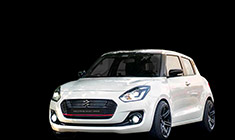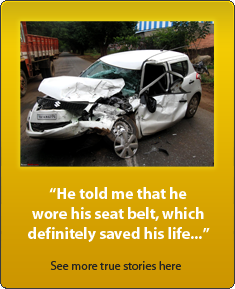News
Car scrappage policy in India: Is it sensible to buy expensive vehicles
I have recently sold my Toyota Fortuner and I am looking for a suitable upgrade, a new luxury SUV, but I am not so sure about it now.
BHPian princey recently shared this with other enthusiasts.
Dear Bhpians,
Himachal Pradesh announces 15-year mandatory scrappage | No salvage
The dilemma is: With the new scrappage policy in vogue in the NCR region and suitably being implemented in Himachal and tightening of 15-year extensions in Rajasthan and Haryana, does it make sense to buy an expensive car and lose much resale value over the years owing to a limited lifespan of 10 years for a diesel car and 15 years for a petrol car?
Having this foreboding thought as having recently sold my trusted Fortuner, am in the market for a suitable upgrade, however, market surveys and extensive discussions with dealers have convinced me that the second-hand value of a new car will deteriorate beyond the 4th year.
So, the dilemma is, does it actually make sense to purchase an expensive car only to lose much in value over the years and sell it at a considerable loss after 6 or 7 years?
Of course, here the head rules over the heart!
PS: Was in the market for a new luxury SUV, but don't know now.
Here's what GTO had to say about the matter:
As a car enthusiast, there's no price I put on driving pleasure and the happiness that car ownership gives me. Hence, I will continue to buy great cars, regardless of 10 & 15 year bans. But a fun car doesn't necessarily mean an expensive one. I am happy with my 20-lakh rupee Jeep as much as I am with my 6-cylinder German luxury sedan.
You live one life. Buy a car you really want, as long as you can comfortably afford it. Keep driving, stop worrying. After 15 years, you will get negligible resale from any car, be it petrol or EV. I would personally avoid a diesel car if I lived in a city with a 10-year ban as I prefer to keep my cars for long.
Here's what BHPian Dr.Abhi had to say about the matter:
Scrappage policy is one of the points. Add to it:
- Evolving emission norms
- Changing fuel availability like e20 gasoline, biodiesel
- Improving electric vehicles' charging speeds
- Availability of better safety equipment like 6 airbags, ADAS with time
- Introduction of new features like ventilated seats, 360-deg camera with time
- The pace of car evolution is mimicking more like mobile phones where a phone becomes irrelevant within a few years
So my mantra is:
- Stay prudent (to your needs and finances)
- Stay simple (no high-tech gadgetry/machinery)
- Stay relevant (changing emission/ fuel norms)
- Drive Safe (no rash/high speed driving)
Here's what BHPian arunphilip had to say about the matter:
I look at it this way: I purchase a car for what it offers me through the time I own it; not what it offers me at the time I dispose of it.
To reuse a popular quotation: the journey is greater than the destination.
The journey being the time I spend with the car, the destination being its resale value.
Any resale value that the car offers is something I view as a bonus at the time of sale, not as an integral part of funding my next car.
To offer a different solution: remember that a car takes the biggest hit the moment you purchase it. So, if you still want to purchase a high-end car, maybe consider a pre-owned option. We have two noteworthy threads on the topic (thread #1, thread #2).
Here's what BHPian Shreyans_Jain had to say about the matter:
The Indian car industry is going through a massive transition. Between ever stricter pollution norms, changing fuel specifications, ethanol blending, electric and hybrid technologies, increasingly complex and expensive maintenance and random end-of-life rules, the old ways of estimating depreciation and car value may not hold. Diesel car owners in Delhi NCR have already found this out the hard way. As such, financially prudent buyers are well advised to avoid spending big bucks on car purchases for the time being. There is no assurance that you’ll get the fair resale value after 7-8 years. In fact, that is highly unlikely. The calculation of the total cost of car ownership should take this new reality into account.
Check out BHPian comments for more insights and information.


















